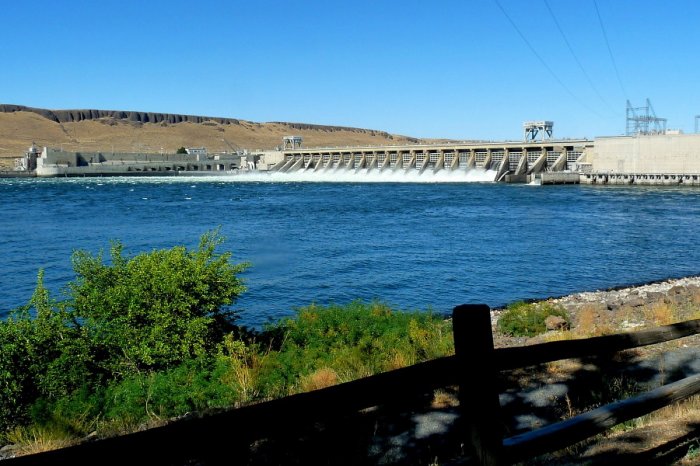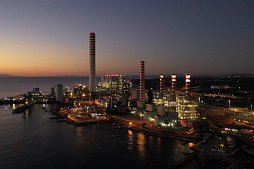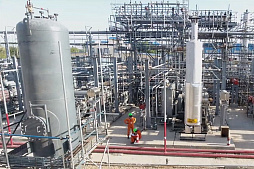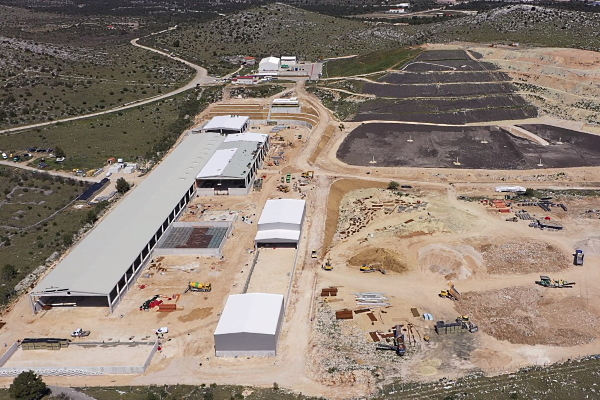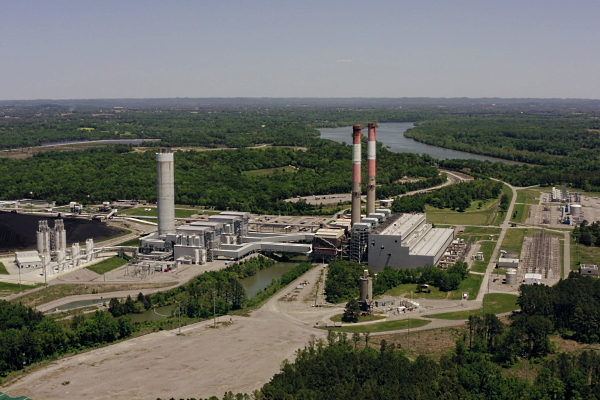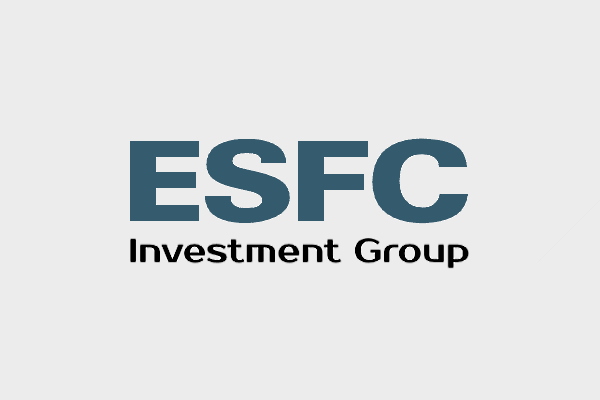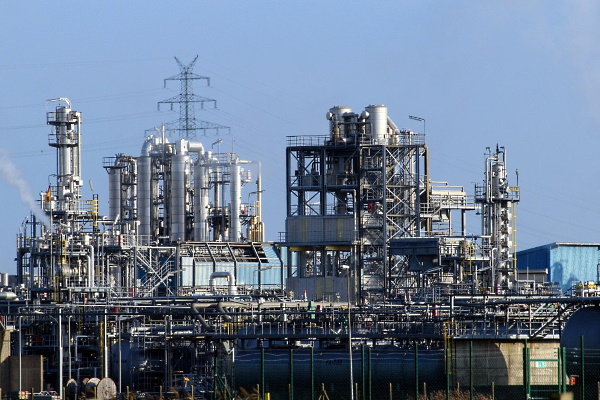To consider an application for financing, fill out the form and send it to us by e-mail along with the project brief, or contact our experts
To survive in a competitive environment, every company must skillfully manage its resources.
Professional investment consulting teams assist their clients in investment decision making, project valuation and project management.
Successful investment activity refers to the constant search and implementation of new projects, since the lack of progress not only worsens the company's financial results, but also causes a general deterioration in business due to the inevitable decrease in the competitiveness of the products and services provided. For this reason, the use of advanced tools for collecting and analyzing information, as well as innovative financial modeling and decision making, is the key to the survival and long-term prosperity of companies in the face of growing competition.
Link Bridge Financial LTDA brings together a team of experienced finance and investment experts who provide professional investment consulting services for large businesses.
We also offer long-term loans, organize project financing schemes and manage large projects around the world.
Principles for making investment decisions
The multi-stage process of planning and implementing a large project is burdened with a high level of risk due to constant changes in the external environment.Long-term investments require freezing a part of the company's capital for several years and usually involve certain restrictions during the development and operation phase.
Experts note the high level of complexity of investment decisions related to the construction of large facilities, especially industrial facilities and energy infrastructure (for example, solar power plants).
Such projects are particularly complex and multifaceted, and the range of stakeholders can include dozens of companies and financial institutions, in addition to thousands of potential customers. All decisions related to such investments are subject to the risk associated with the uncertainty of financial, macroeconomic and legal factors that can change in the long term and adversely affect project participants.
Table: Two main categories of investment decisions.
| Type | Brief description |
| Decisions aimed at choosing the most suitable investment project | This type of decision is based on deep and time-consuming analysis, since its adoption requires a professional assessment of risks and profitability, analysis of the external and internal business environment, and other studies. |
| Decisions regarding the best way to implement the project | These sorts of decisions emerge from comparative analysis and are made in favor of instruments that give participants the best balance of benefit and risk under specific conditions. |
| Decisions regarding the management of an existing facility | Since the investment project does not end at the moment the facility is put into operation, the functions of control, management and operational decision-making are also important. |
Investments in fixed assets are associated with limiting the effects of asset depreciation and ensure the gradual replacement of aging equipment.
This, in a narrower sense, is a necessary condition for maintaining existing production capacity, which also allows for an increase in production volumes if necessary.
Investment decisions may also involve long-term or short-term investments in financial instruments of other entities in order to obtain control over them or additional benefits in the form of a part of their profits. An alternative form of investment could be lending to companies, which is an example of an investment decision with a clear financial component.
Investment decisions are among the most important activities of companies, which determine the basis of their functioning.
Their principles include the following:
• Irreversibility. Once decisions are made, they end up with losses or profits, and the business does not have real options to quickly correct the wrong decision due to the long-term investment planning horizon.
• Scale. An investment project can contribute to the successful development of a company or the deterioration of financial health up to bankruptcy due to a long-term freezing of significant resources. Investments involve significant costs, which limits the possibility of making alternative decisions on the allocation of funds to other projects.
• Risk. All major projects are burdened with high external and internal risks due to their complexity and dynamically changing environment. This requires the use of professional investment consulting services during the planning stages in order to reduce the level of uncertainty.
Any large project, including investment, must be considered by the participants in several planes in terms of scale, financial needs, as well as the complexity and goals to be achieved. In practice, this makes it impossible to standardize project planning.
Each investment is unique and requires customized financial and organizational solutions.
Since the implementation of an investment project is a long process, full of various unexpected situations, it is recommended to first determine and constantly optimize the resources necessary for its successful implementation. These resources include the knowledge, skills, experience and collaborative efforts of people, facilities and equipment, information, technology and funds.
This feature of investment projects requires the application of various complex evaluation methods in order to correctly assess their limitations, risks, cost, profitability or expected payback period. The more factors to evaluate and the wider the time horizon of the project, the more difficult it is to make the right decision.
Obviously, investment consulting services are becoming a necessity.
Decision making in investment consulting
Making an investment decision requires the development of a professional plan, as well as the widespread use of up-to-date market information, taking into account the conditions of activity of a given business entity.In order for the decision to start or stop investing to be completely rational, it must be preceded by the following activities:
1. External and internal analysis and reporting.
2. Evaluation of the project by static and dynamic methods, taking into account the change in the value of money over time and subsequent analysis of the results.
3. Selection of optimal methods for assessing investment risk to identify potential threats that affect the profitability of the project.

Major investment decisions should always be made incrementally, using a project-specific step-by-step model. In practice, the investment process is usually based on the individual approach of the investor, which increases the risk of not achieving the initial goals of the project. A careful step-by-step approach allows project participants to avoid serious procedural errors that can significantly reduce the profitability of an investment project or even lead to its failure.
Investment decisions are closely related to qualitative analysis and selection of investment projects.
They are regarded as one of the most difficult business decisions for the following reasons:
• High financial costs.
• Prolonged capital freeze and reduced liquidity.
• Relatively high investment risk.
• High dependence of the project on good planning.
• Introduction of immature / risky technologies.
• Uncertain investment outcome.
• Long implementation period.
The accuracy of investment decisions has an impact on the competitiveness of a business, its market share, as well as its ability to generate income.
Wrong decisions regarding the type, size or structure of asset investments can result in limited liquidity and reduce the flexibility of a company's operations. In extreme cases, this means big financial problems, even the bankruptcy of the investment project and its participants.
In general, each decision in investment consulting should reflect the choice of the optimal business development program, created taking into account available resources and possible development directions, as well as related investment projects.
An important role in making investment decisions is played by the process of investment planning, within which there are several stages:
• Investment initiative.
• Formulation of the investment problem.
• Definition of performance criteria.
• Identification of potential constraints and risks.
• Search for available investment project options.
• Comparative evaluation of options.
• Choosing the most suitable project.
• Search and attraction of financing.
• Project implementation.
• Control.
An important role in this process is the high competition for financial resources and limited access to external sources of financing.
When attempting to raise borrowed funds, participants must be fully convinced of the appropriateness of these investments. At the initial stage, an analysis should also be carried out, which will confirm the legitimacy of attracting resources to a specific project.
Investment decision factors for large projects
Investment decisions are long-term.When considering them, it is necessary to take into account the influence of many factors.
Firstly, these are potential incomes, which depend on the demand for a particular product.
Secondly, financial costs, which are associated, among other things, with interest rates.
Finally, the investment expectations of participants and partners should be taken into account.
External factors determining investment decisions:
• Demand for the goods/services of the future enterprise, which can be estimated based on the official GDP forecasts of the host country and target markets.
• The economic situation of the host country and the investment climate.
• Availability of natural, financial, technological and human resources.
• Current and potential competition in the domestic and foreign markets.
• State policy: monetary, tax and investment policy, regulation of special economic zones, opportunities for depreciation of fixed assets, customs legislation, etc.
• The openness of the economy, including foreign trade, the movement of capital and human resources, the country's participation in international trade and financial systems.
• Formal barriers to investment, such as import restrictions.
Among the external factors influencing the development of investment projects, the most important are expected demand, the cost and availability of external capital, as well as government tax policy, investment legislation, interest rate and exchange rate policies.
Factors that negatively influence investment decisions include high inflation and interest rate fluctuations. Inflation expresses the level of uncertainty in the economy and does not contribute to the efficient allocation of resources. Interest rates affect investments by changing the cost of capital.
Internal factors that determine investment decisions include the following:
• Availability, mobility, productivity and profitability of the resources of the companies participating in the future investment project.
• Access to external resources needed to meet project needs.
• Level of organization, management system and organizational culture, including knowledge and ability to collaborate effectively with other players.
• The ability of managers to adapt the company to the high variability of the environment.
• Opportunity and propensity to invest.
Internal factors that are of great importance for making investment decisions include the degree of utilization of production facilities and other available assets, the willingness of top-management to invest and the current financial health of the business.
So, what should be considered when making investment decisions? All factors can be grouped into external and internal, inherent only to certain types of projects. These determinants are included in investment models and cash flow models.

Making decisions about business modernization
Projects that involve the modernization or expansion of an existing enterprise have some peculiarities.They should be taken into account when making investment decisions.
A specific type of investment projects is the modernization of existing enterprises or the expansion of production capacities. Modernization is expensive and requires serious capital investments to improve the efficiency of equipment, train employees, attract external professional consultants to organize the further operation of the enterprise.
The reasons for the modernization of a production / energy facility may be the following:
• The desire of companies to develop and conquer new markets.
• The need to improve quality and reduce production costs.
• Changing the profile of the enterprise, diversification of production.
• The concept of increasing efficiency through innovative technologies.
• Environmental considerations, etc.
Modernization projects are an important element that ensures the development of existing economic entities.
Usually they are associated with the improvement of the processes occurring within these subjects, and leading to an increase in the efficiency of the management of available resources.
The purpose of making investment decisions to modernize / expand a business is to find better solutions in terms of production capacity, production methods and management systems. On this basis, companies can achieve a more favorable balance between costs and economic effects.
These actions are most often forced by changes in the external environment, such as changes in supply and demand, increased competition, or technical progress. For this reason, modernization projects, as a rule, are aimed at improving the organizational, economic, financial and technical structure of a particular enterprise to levels that correspond to modern realities.
From a practical point of view, the project for the modernization of a large company is subject to the same principles as any investment project, however, it requires a more detailed study of a number of elements of a feasibility study and other documentation.
What should be considered when making an investment decision for modernization?
On the one hand, technical processes and areas for future modernization are subject to a detailed assessment. On the other hand, each of these areas should be studied professionally for weaknesses that require immediate improvement (expansion) and the choice of the best ways to implement the project.
A plan of short-term corrective measures related to the implementation of reorganization or restructuring processes in certain functional areas of the enterprise harmoniously fits into the decision-making process.
Based on these and other plans, financial documentation is being developed to attract project financing with the participation of investors and credit institutions.
Unlike new investment projects, modernization or expansion projects may include investments aimed at introducing targeted changes that will allow the implementation of new development concepts while maintaining current production levels, costs, technologies and assets.
In the case of large enterprises, it often happens that even the best greenfield projects cannot replace perfectly prepared and organized modernization projects. This is recognized by business owners, investors, and financial institutions, who often consider modernization as the only alternative to bankruptcy and an opportunity to repay a loan or return invested capital.
Formation of an effective investment project team
Making the right investment decision is inextricably linked with the appointment of a competent project team leader who will be responsible for the implementation and coordination of activities within the framework of the tasks set.For each structure, groups of participants are formed, which should have specific tasks and responsibilities associated with a particular project.
The identification of stakeholders should take place at the planning stage of the project, which allows you to find out the expectations associated with its implementation, and on this basis to make a decision on the start of design, implementation, stop, etc. The goals of individual groups of project participants do not always coincide, especially in the case of owners and sponsors, for each of which the primary goal is profit or increase in the value of their business.
Approximate list of stakeholders of the investment project:
• Clients, buyers and users.
• Initiators and sponsors of the investment project.
• Companies and individuals managing the project or parts of it.
• Project teams and consulting organizations.
• Suppliers and contractors.
• Investors and lending institutions.
• State bodies.
In relation to investment projects, participants or stakeholders are groups of individuals, companies or organizations that are involved in this project, can influence the project, or expect certain benefits in connection with its implementation.
The impact of stakeholders on a project can be both positive and negative.
Their identification and understanding of the impact on the project is essential in terms of its timing and potential costs. Therefore, it is worth taking into account the opinions of stakeholders regarding the project being implemented.
In order for the preparation and implementation of an investment project to be successful and bring maximum benefit to its participants, it is important to synchronize actions within the project team and effectively interact with all stakeholder groups. It is also necessary to clearly define the scope of duties and responsibilities of each person associated with the investment, including management (project managers, directors, operations managers), contractors, suppliers and employees.
The project manager plays an important role. His main task is to determine the strategy for the implementation of the project using available resources, as well as organizing, motivating and monitoring the implementation of orders throughout the project.
This requires complex skills to create a project concept and develop an organizational structure.
The project manager and his team must understand different organizational styles and cultures (especially for the implementation of large international projects). He must take into account the external environment of the business, since these elements can affect the availability of resources and the way a particular project is carried out.
Professional teams specialized in investment consulting services successfully use extensive knowledge and experience to support the strategic decisions of the project manager. Such cooperation on a contract basis is actively used in risky international projects.

Professional services in the field of investment consulting
Experts in investment consulting help corporate clients systematize and simplify the process of making strategic decisions.A thorough study of the current situation and market development forecasts allows professional teams to develop optimal recommendations for each project.
The participation of external experts and consultants in project preparation is important. As investments become more complex, competition and business demands increase, more and more participants in the investment process are interested in accessing appropriate investment consulting services or technical assistance.
This can positively affect the profitability of projects.
Investment consulting can be offered at several levels:
• Government: Many governments and local governments develop government programs and develop industrial policies.
• Development Funds: Public and private agencies and Structural Economic Development Funds help companies search for large investment projects, build investment portfolios and prepare documentation.
• Commercial banks: these financial institutions provide due diligence on projects (verification of legality of funding and credit rating); they also finance the fixed and working capital of the initiators.
• Development Banks: Specialized banks act as investment consultants, evaluate investments from a banking point of view, calculate the profitability of projects and carry out financial modeling.
• IFIs: Major international financial institutions such as the World Bank are active in investment consultanting services, either directly or through local and international companies.
• International consulting companies or consultants: These entities are recruited for pre-investment research, management training, assistance in the creation and development of local projects.
A critical factor in the success of an investment decision is the right choice of consultants.
It is no secret that in many cases the quality of consulting services, including the quality of documentation prepared by consulting companies, leaves much to be desired. Despite this, the hiring of experienced experts or experts is most often useful and necessary for the preparation and implementation of a large project.
Leading consulting firms have at their disposal significant resources of macroeconomic information, including up-to-date statistical data that are not publicly available. In addition, they have extensive financial, economic and legal knowledge and competencies, as well as use invaluable experience and business contacts for the benefit of the client, which can maximize the effectiveness of investments and their economic impact.
Link Bridge Financial LTDA is a company with rich international experience in investing and supporting large projects. Together with respected partners, we helped implement environmental, energy and industrial projects in countries such as Spain, Germany, France, Mexico, Brazil, Saudi Arabia and others, gradually expanding the geography of our presence.
Our services for large businesses include, but are not limited to:
• Investment design and consulting.
• Development of a feasibility study and an information memorandum.
• Management of the company's investment strategy.
• Professional evaluation of investment projects.
• Providing long-term loans.
• Refinancing, etc.
Are you looking for a long-term loan for a new project?
Do you need professional investment advisory and financial modeling services?
Contact our representative to learn more about the benefits of LBFL.
We are absolutely sure that our experience and innovative financial technologies will help your business achieve the best project financing conditions.







